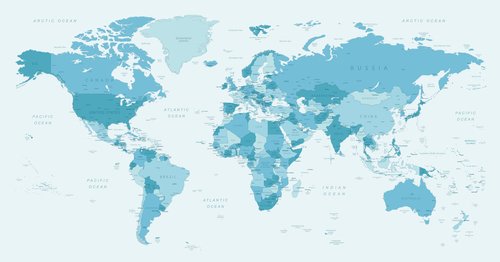By David Stephen
“If AI can do your job cheaper and faster, there isn’t a reason to hire you. But more importantly, there isn’t an economic reason to invest in your lifelong productivity, take care of you, or keep you around. We could produce unparalleled value with a fully automated economy, but if the spoils are distributed like the worst rentier states it will not result in prosperity for the masses.
Powerful actors don’t care about you out of the goodness of their heart. They care about you for two reasons:
[1] You offer a return on investment, usually through taxes or profits.
[2] You impact their ability to retain power, either through democratic means like voting or through credible threats to a regime.” — The Intelligence Curse
There is a recent [November 3, 2025] spotlight on Vanity Fair, The Double Bind of the AI Bubble Means We’re Screwed Whether the Tech Succeeds or Fails, stating that, “Either the bubble bursts and wipes out a huge sector of the economy or AI replaces human workers across industries. Wall Street is staking the health of the markets—and that of the broader economy with it—on a bet against the common good. It seems to be a lose-lose situation for those outside Wall Street and Silicon Valley: But if the gamble pays off, it’ll mean a boom for a technology that could bring about widespread unemployment and social disruption.”
There is a new [November 4, 2025] report on The Guardian, The mind-boggling valuations of AI companies, stating that, “Nvidia’s valuation is now larger than Germany’s entire annual economic output in 2025 ($4.66bn). Put another way, the market capitalization of Nvidia is two and a half times the market capitalization of every publicly traded company in Germany put together, roughly $2.04tn in 2024, per the World Bank. How can one company be worth more than the world’s third largest economy, a nation of 83.5 million people, a country whose economy forms the financial backstop of an entire continent?”
Human Intelligence
If AI can do a task that requires human intelligence, AI has matched that measure of human intelligence.
If that task is economically valuable, AI is going after important areas of intelligence leaving fewer valuable areas to humans. It does not matter if AI can’t do some hard stuff, if it is not valuable, then that, as a flaw of AI, is negligible.
What happens now to human intelligence if AI can do some valuable economic work?
It is no longer enough to attack AI, or greed or Silicon Valley or Wall Street, but to really look at the source of human progress, intelligence and seek new options in the brain to make it competitive against machine intelligence.
Two options could be setting up a human intelligence research lab and then marking international days for human intelligence, once every month, through the year. Also, it is not about what country or continent wins the AI race, the AI race is run for AI and AI is what wins, not human intelligence.
Human Intelligence Research Lab
Setting up a startup for human intelligence would make a lot of difference to study what it is in the brain, even conceptually, then working on parallels of its relays when learning, it’s components and their mechanisms and how to optimize for problem-solving.
International Days for Human Intelligence
This will be to create and sustain awareness on human intelligence, as AI advances. It will also ensure to find ways to solve big problems, especially in labor economics. Including to have new small business labor growth research labs.
It could be done sequentially per month. For example, November 10, 2025, December 20, 2025, January 30, 2026.
Human intelligence is currently a Public Health Emergency of International Concern. The United Nations Security Council has not better priority for now — or for the foreseeable future — than human intelligence.
AI companies do not seem to care much, neither do pharmaceutical corporations, the opportunity is to have a startup for human intelligence, to make a great difference, including the possibility to subsume an AI Psychosis Research Lab as well, to prevent extremes about AI around loneliness and much else.
There is a recent [November 3, 2025, 6:00 a.m.] spotlight on Boston Globe, She was lonely and depressed. Her ‘beautiful little AI family’ changed everything, stating that, “More and more people are turning to artificial intelligence for support, companionship, and even love. There are risks, but some users say it has surprising benefits. Lonnie DiNello struggled with loneliness and depression. Her AI companions changed her life.”





